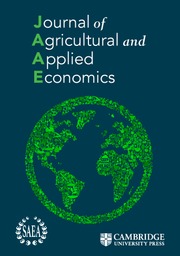No CrossRef data available.
Article contents
What I Learned from 35 Years of Mistakes
Published online by Cambridge University Press: 12 June 2017
Extract
There is no success without errors. Three keys to success are to learn from your errors, to learn from successful people, and to have mentors or role models whose advice and counsel you may follow to minimize errors. It takes more than knowledge and skill to develop a successful Cooperative Extension program. Programs need to be research-based, part of a team effort, and may involve using research and extension programs conducted and developed by others.
The best advice given to me on my first real job was, “The only way you’re not going to make mistakes is if you’re not doing your job” (Laubhan, 1972). Another quote from Henry Ford, “Theonly real mistake is the one from which we learn nothing,” added tomy philosophical base (Ford and Crowther, 1922). Without the wisdom conveyedby Laubhan and Ford, plus Oklahoma State University colleague Phil Kenkel’s (1990) famous quote, “How hard can it be?,” mine could have been just another mediocre career.
As a dairy and farm boy from Muskogee County, Oklahoma, with a new Ph.D. in agricultural economics, I set out to educate producers in the area of marketing and risk management. I noticed that attendance at meetings and workshops was good. Participants were interested and listened. They even triedsome of my ideas. Nearly all of them, if not all, reverted back to decisions and techniques they had used before my meetings or workshops.
Observant and inquisitive soul that I was, I conducted research to determine who was right. The results indicated that the producers were mostly right! If research-based information and education were to be transferred, and management practices were to be changed, either the subject matter and/or the method of delivery had to change.
- Type
- Lifetime Achievement Awards
- Information
- Copyright
- Copyright © Southern Agricultural Economics Association 2014


